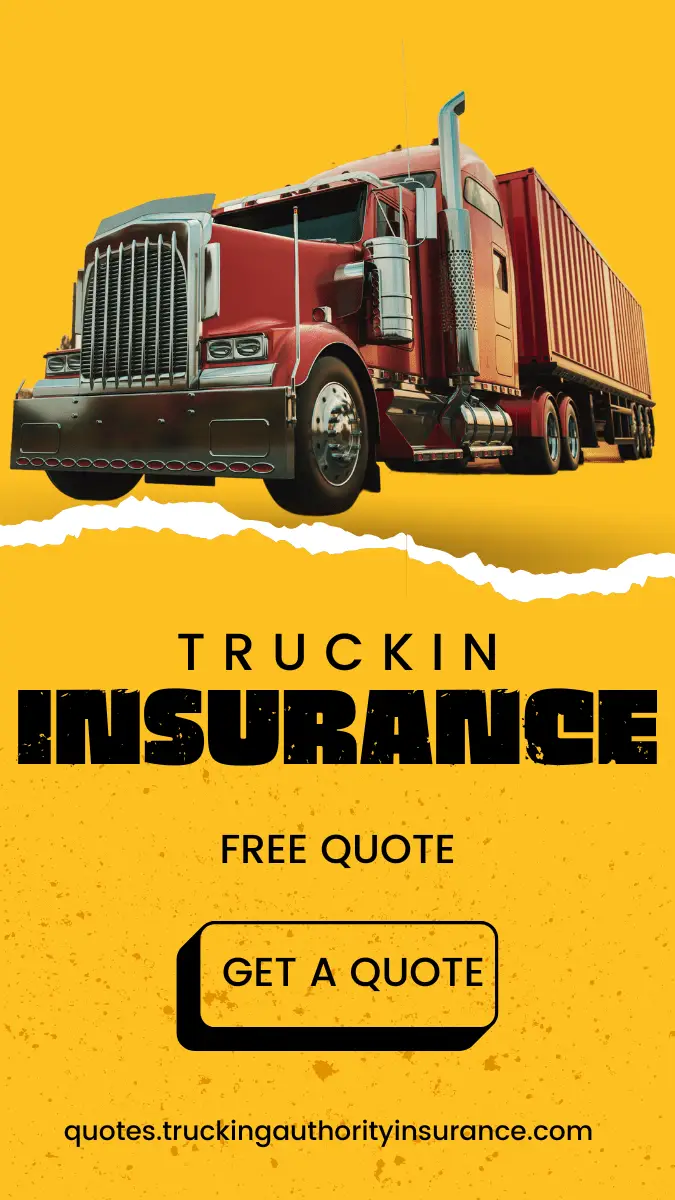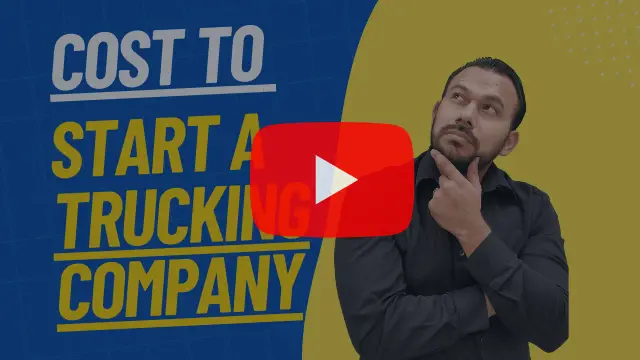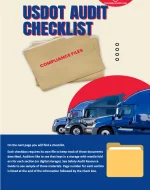How to Obtain Your USDOT and MC Number in California
Starting a trucking business in California involves several crucial steps, including obtaining your USDOT and MC numbers. These numbers are essential for compliance with federal and state regulations, enabling you to operate legally as a commercial carrier. This guide details the process to obtain your USDOT and MC numbers in California, ensuring a smooth start to your trucking business.
What Is a USDOT Number?
A USDOT number is a unique identifier issued by the Federal Motor Carrier Safety Administration (FMCSA) to track a company’s safety and compliance records. It is mandatory for companies operating commercial vehicles involved in interstate commerce. Additionally, it plays a significant role in maintaining safety standards within the industry.
What Is an MC Number?
An MC number, or operating authority, allows for-hire carriers to transport goods or passengers across state lines. Furthermore, this number indicates compliance with federal regulations governing commercial transportation, making it a critical step for trucking companies.
Why Do You Need Your USDOT and MC Number In California?
- Legal Compliance: Required to operate commercial vehicles in interstate commerce.
- Safety Tracking: Helps the FMCSA monitor your compliance with safety regulations.
- Business Opportunities: Enables your company to legally transport goods for profit across state lines. Obtaining these numbers is crucial for expanding your business reach.
Guide to Obtain Your USDOT and MC Numbers in California
- Register Your Business
Before applying for a USDOT or MC number, register your business as a legal entity in California. Choose a structure such as an LLC, corporation, or partnership. Visit the California Business Portal for guidance on starting a business in California.
- Apply for a USDOT Number
Visit the FMCSA website and complete the USDOT application. You will need the following:
- Employer Identification Number (EIN)
- Vehicle information (e.g., weight and classification)
- Type of cargo you plan to transport
By preparing these documents in advance, you can ensure a smoother application process.
- Apply for an MC Number
File Form OP-1 through the FMCSA’s Unified Registration System (URS). This step requires specifying your business operations and paying the $300 filing fee. Additionally, ensuring accuracy in your application will help avoid delays.
- Obtain Insurance Coverage
Secure liability and cargo insurance that meets FMCSA requirements. File Form BMC-91 or BMC-91X with the FMCSA to verify coverage. Consulting experienced insurance providers specializing in the trucking industry can help you find the best options.
- File Form BOC-3
Designate a process agent for each state where you operate by filing Form BOC-3. This agent will handle legal documents on your behalf. This step ensures compliance and allows you to focus on growing your business.
- Register for IFTA and IRP
For interstate operations, register with the International Fuel Tax Agreement (IFTA) and the International Registration Plan (IRP). California-specific resources include:
These registrations ensure proper tax allocation and compliance with vehicle registration requirements.
- Apply for California Intrastate Authority
If you plan to operate exclusively within California, you must apply for a CA number. Visit the California Intrastate Authority page to complete your application and understand the state-specific requirements.
- Prepare for the New Entrant Safety Audit
All new carriers must undergo a safety audit within their first 18 months of operation. Ensure compliance with record-keeping, driver qualifications, and vehicle maintenance. Being proactive about these requirements can prevent penalties or delays.
Need Help Obtaining Your Permits?
Get Your Trucking Authority Today!
We Can Help You Setup Your USDOT & MC Number.
Speak With Our Experienced Permit Professionals That Can Help You Every Step Of The Way.
Call Us Today! Live Agents Are Standing By.
Types of Operating Authorities for Interstate Commerce
When applying for an MC number, it is essential to choose the correct type of operating authority based on your business needs. Below are the main types:
Motor Carrier of Property (Except Household Goods)
This authority is for for-hire carriers transporting regulated commodities (excluding household goods) for the general public. Requirements include filing proof of public liability insurance (bodily injury and property damage – BI & PD) with the FMCSA. Cargo insurance is not required.
Motor Carrier of Household Goods (HHG)
Designed for moving companies, this authority allows the transportation of household goods. In addition to public liability insurance, carriers must file proof of cargo insurance with the FMCSA. Services like packing, unpacking, and loading/unloading at residences are often included.
Broker of Property (Except Household Goods)
Brokers arrange the transportation of property (excluding household goods) by authorized motor carriers. Brokers do not take possession of the goods and are not responsible for them.
Broker of Household Goods (HHG)
This authority is for individuals or companies arranging the transportation of household goods by authorized carriers. Brokers must meet requirements similar to those for household goods motor carriers, including facilitating packing and unpacking services.
Additional Types of Authorities
- Freight Forwarder Authority
- Motor Passenger Carrier Authority
- Non-North America-Domiciled Motor Carriers
- Mexico-Based Carriers Operating Beyond U.S. Municipalities and Commercial Zones
- Mexican Certificate of Registration for Foreign Motor Carriers
For more information, visit the FMCSA Types of Operating Authority page.
Common Mistakes When Applying for USDOT and MC Numbers In California
- Incomplete Applications: Ensure all forms are accurate and complete. Reviewing your entries before submission can prevent rejections.
- Insurance Gaps: Verify that your coverage meets federal requirements. Otherwise, your application could face delays.
- Missed Deadlines: Stay up to date with application and renewal timelines to avoid penalties.
- Ignoring Compliance Audits: Prepare thoroughly for the new entrant safety audit.
Trucking Authority Services For USDOT and MC Number In California
Our Services
We offer a comprehensive range of services to support your trucking business. Some of our key services include:
- MC Number Application: Facilitates interstate operations.
- BOC-3 Filing: Mandatory for activating your authority.
- Unified Carrier Registration (UCR): Ensures compliance for interstate carriers.
- Form 2290 Filing: Meets IRS Heavy Vehicle Use Tax (HVUT) requirements.
- IFTA Registration and Quarterly Filings: Simplifies fuel tax reporting.
New Business Formation
- New Business Setup: Assistance with forming corporations, LLCs, or partnerships tailored to your trucking needs. Learn more in our LLC for Trucking Companies Guide.
State-Specific Permits
- California Intrastate Authority: Includes obtaining necessary permits and understanding state requirements.
- California IFTA Registration: Simplifies fuel tax reporting for California-based carriers.
- California IRP Registration: Facilitates multi-state vehicle registration for commercial vehicles.
Explore our complete range of services here: Trucking Authority and Permit Services.
Networking and Resources for Success
The trucking industry thrives on strong relationships and reliable partnerships. To manage your load boards and paperwork effectively, consider the following:
- Work with Experienced Brokers and Dispatchers: These professionals can help you secure profitable loads and handle essential paperwork, saving you time and effort.
- Join Industry Associations: Networking with other trucking professionals provides valuable insights, support, and opportunities for collaboration.
- Utilize Professional Services: Our team has over a decade of experience in the trucking industry, making us a trusted partner for your business needs. We help you navigate complex processes and ensure compliance with all regulations.
- Leverage Online Platforms: Use digital tools and forums to connect with brokers, find freight opportunities, and share industry knowledge.
Networking and collaboration are critical components of long-term success in the trucking business. By building strong partnerships and utilizing expert resources, you can maximize efficiency and profitability.
FAQs About USDOT and MC Numbers in California
- How long does it take to get a USDOT number? The application process is typically completed within a few business days.
- What is the cost of obtaining an MC number? The filing fee for an MC number is $300. Additional costs may include insurance.
- Do I need both a USDOT and MC number? Yes, if you are operating a for-hire trucking business across state lines. Both are essential for legal compliance.
- Can I apply for these numbers on my own? Yes, but many carriers choose to work with specialists to ensure the process is faster and more accurate.
- What is a BOC-3 filing? This form designates a process agent to handle legal documents on your behalf.
- Is insurance mandatory to obtain an MC number? Yes, liability and cargo insurance are required to activate your authority.
- When should I renew my USDOT registration? USDOT registration must be updated every two years, even if there are no changes.
- What happens if my application is denied? You can correct the errors and reapply. Working with experts can help avoid this issue.
- What is IFTA, and why do I need it? The IFTA simplifies fuel tax reporting for carriers operating in multiple states.
- Do I need an accountant specialized in trucking? Yes, a specialized accountant can help manage taxes and financial planning effectively.
Conclusion
Obtaining your USDOT and MC numbers in California is a critical step for operating a successful trucking business. By following this guide and using the right resources, you can ensure compliance and focus on growing your company. For expert assistance, visit our website at TruckersAuthority.com.







